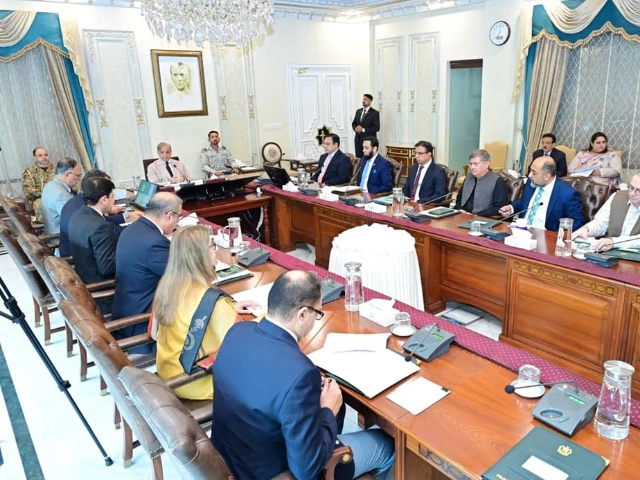Prime Minister Shehbaz Sharif on Tuesday directed authorities to ensure the completion of the 100-megawatt solar power project in Gilgit-Baltistan (G-B) within a year, reaffirming the federal government’s full financial commitment to the initiative.
Chairing a review meeting in Islamabad, the prime minister said the project would be executed on a priority basis to provide uninterrupted, low-cost, and environmentally sustainable electricity to the region, which frequently faces prolonged power outages.
The premier said he would personally supervise the progress of the project, which he described as a crucial step toward ending energy shortages in G-B. He further instructed that the infrastructure be built to withstand the impacts of climate change.
Also Read: Bilawal dismisses 27th Constitutional Amendment rumours as ‘baseless’
Emphasising the urgency of the matter, he said, “Solarisation offers the most practical solution for remote regions like G-B, where 18 to 20 hours of load-shedding remain a routine challenge.”
PM Shehbaz also directed that electricity supply from both hydropower and solar sources be strengthened to help residents cope with extreme weather conditions and power disruptions.
To ensure effective implementation, Energy Minister Awais Leghari was appointed chairman of the Steering Committee overseeing the project. During the briefing, the meeting was informed that six solar parks would be established in Gilgit, eight in Skardu, and six in Diamer.
Additionally, solar panels would be installed on 234 government buildings in Gilgit, 179 in Skardu, and 66 in Diamer. A real-time monitoring system for battery backup is also being developed.
Read: At least three more terrorists killed in Zhob counter-terrorism sweep
Officials assured that the project would adhere to international standards and that transparency would be ensured throughout its construction.
The project had earlier been announced by PM Shehbaz during his visit to G-B, as Executive Committee of the National Economic Council (ECNEC) also approved the project few days later.
Separately, in a meeting with the National Disaster Management Authority (NDMA) Chairman Lt Gen Inam Haider Malik, the prime minister directed the authority to enhance coordination with provincial governments for effective response and rehabilitation efforts amid recent rains and flooding.
He called for the swift operationalisation of G-B early warning system in coordination with the Ministry of Climate Change, stressing the importance of timely alerts in vulnerable areas to reduce risks during extreme weather events.

